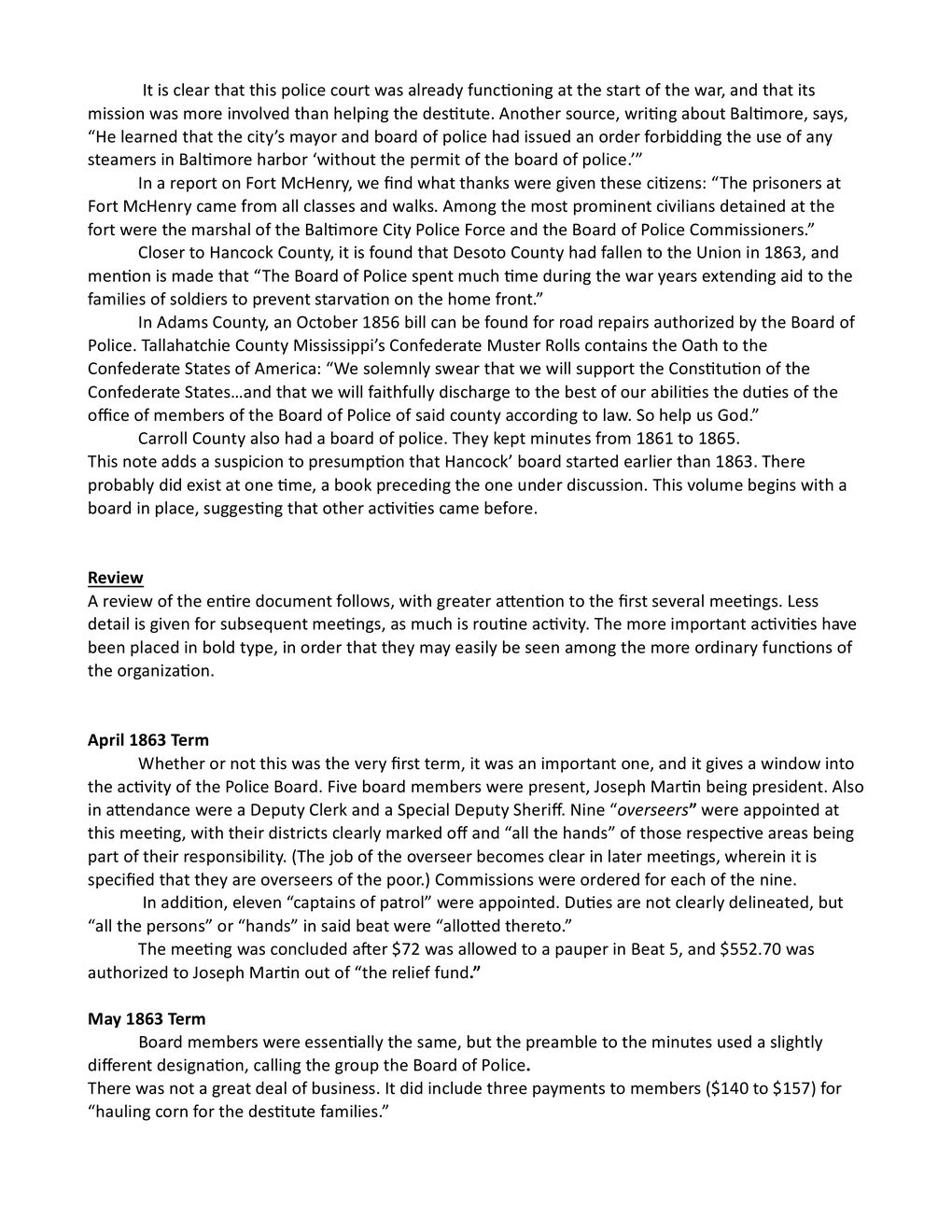This text was obtained via automated optical character recognition.
It has not been edited and may therefore contain several errors.
It is clear that this police court was already functioning at the start of the war, and that its mission was more involved than helping the destitute. Another source, writing about Baltimore, says, "He learned that the city's mayor and board of police had issued an order forbidding the use of any steamers in Baltimore harbor 'without the permit of the board of police.'" In a report on Fort McHenry, we find what thanks were given these citizens: "The prisoners at Fort McHenry came from all classes and walks. Among the most prominent civilians detained at the fort were the marshal of the Baltimore City Police Force and the Board of Police Commissioners." Closer to Hancock County, it is found that Desoto County had fallen to the Union in 1863, and mention is made that "The Board of Police spent much time during the war years extending aid to the families of soldiers to prevent starvation on the home front." In Adams County, an October 1856 bill can be found for road repairs authorized by the Board of Police. Tallahatchie County Mississippi's Confederate Muster Rolls contains the Oath to the Confederate States of America: "We solemnly swear that we will support the Constitution of the Confederate States...and that we will faithfully discharge to the best of our abilities the duties of the office of members of the Board of Police of said county according to law. So help us God." Carroll County also had a board of police. They kept minutes from 1861 to 1865. This note adds a suspicion to presumption that Hancock' board started earlier than 1863. There probably did exist at one time, a book preceding the one under discussion. This volume begins with a board in place, suggesting that other activities came before. Review A review of the entire document follows, with greater attention to the first several meetings. Less detail is given for subsequent meetings, as much is routine activity. The more important activities have been placed in bold type, in order that they may easily be seen among the more ordinary functions of the organization. April 1863 Term Whether or not this was the very first term, it was an important one, and it gives a window into the activity of the Police Board. Five board members were present, Joseph Martin being president. Also in attendance were a Deputy Clerk and a Special Deputy Sheriff. Nine “overseers" were appointed at this meeting, with their districts clearly marked off and "all the hands" of those respective areas being part of their responsibility. (The job of the overseer becomes clear in later meetings, wherein it is specified that they are overseers of the poor.) Commissions were ordered for each of the nine. In addition, eleven "captains of patrol" were appointed. Duties are not clearly delineated, but "all the persons" or "hands" in said beat were "allotted thereto." The meeting was concluded after $72 was allowed to a pauper in Beat 5, and $552.70 was authorized to Joseph Martin out of "the relief fund." May 1863 Term Board members were essentially the same, but the preamble to the minutes used a slightly different designation, calling the group the Board of Police. There was not a great deal of business. It did include three payments to members ($140 to $157) for "hauling corn for the destitute families."

Police Court 1863-1866 Russell Guerin - Minutes of Hancock County Police Court 1863-1866 (2)